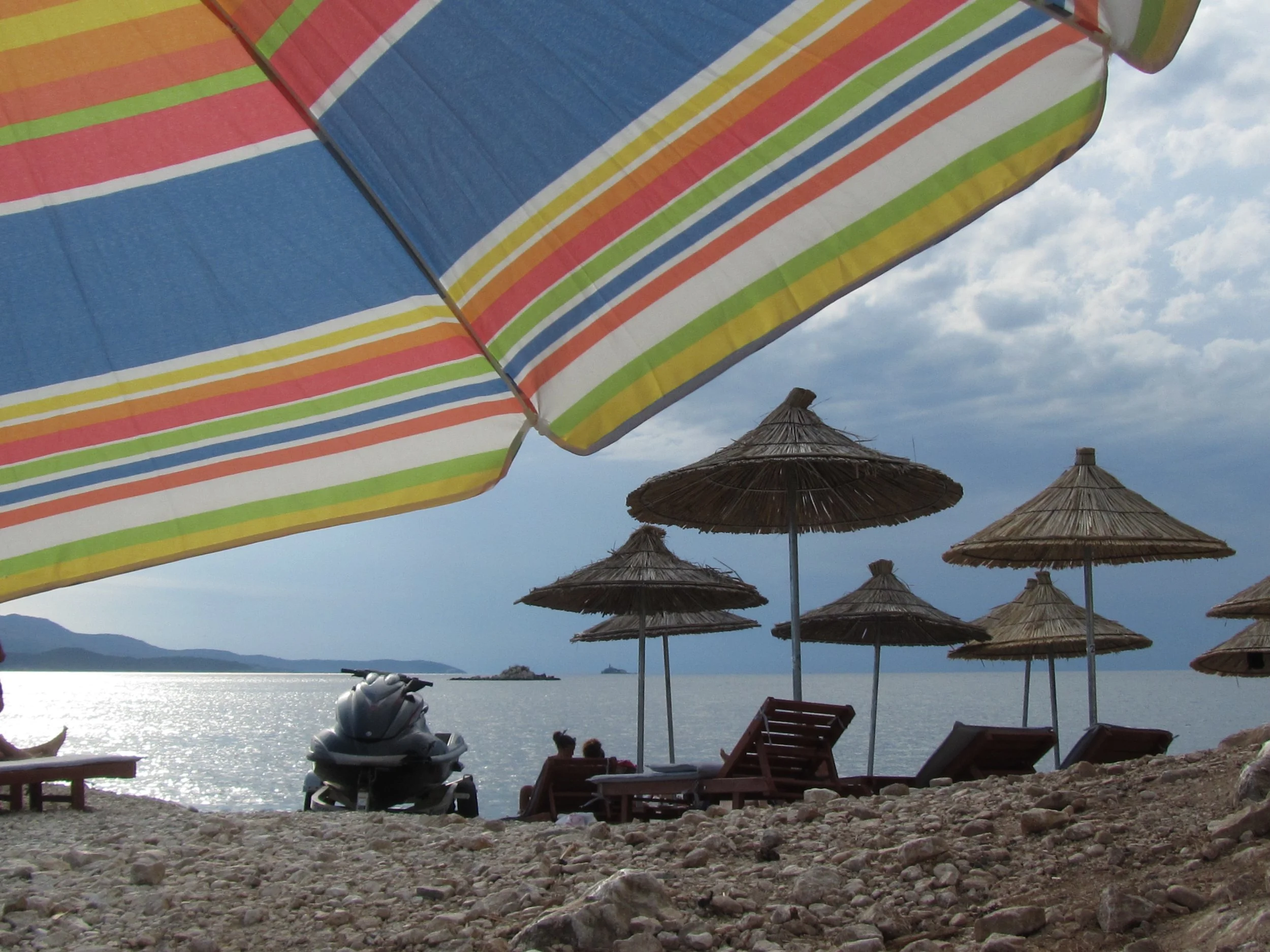Four poems
/By Alistair Noon
Information on your Booking
There is an island where they’ll kill
the visitor who strides ashore.
It seems to be the people’s will.
It seems to be the natural law.
You may have gospels, sheep or beer.
You may have medicine you could teach.
But in their eyes it seems quite clear
that you’re a demon on their beach.
They may have heard from other sources,
whatever your explicit pitch,
you’re really after their resources,
which means of course you can’t be rich.
Be happy when you click the code,
unlatch the box and take the key
to access this three-day abode
whose owner you need never see.
Yards
Doors to yards aren’t often open,
due to fears that things get broken
if you let the public in,
if you let them do their thing.
If one’s open though, then step
into someone’s London club,
greet the curvy plaster sentries
hired in some preceding century.
Pass the patterned tiles on walls
as if here be swimming pools,
as if every hall’s a bathroom.
And, if no one yet has asked whom
you’d be here to see, that’s good.
If they ask, you’re here to look
round the yard and then the yard
after that, which has a garden,
where a web designer’s loft is,
or the esoteric’s office,
yards where they would harness carts,
used today to flog used cars,
places, bright with fresh graffiti,
tidy suburbs think are seedy.
No you don’t live here, but yes,
there are yards to see here yet.
Note on an Albanian Beach
Dear absent subcontractor,
your loungers ever compacter
across this real estate,
your Med-defended enclosure
for solar over-exposure
has left us no free shade,
so we’ve plonked our jack in the sand
that you’ve now made into land,
and told the people hawking
the nibbles that we won’t pay for:
“Let’s divvy up the labour
of splashing around and walking.”
Our vault is now stone-pinned
and no more at risk from the wind
than a sapling in local ruins.
Our post is at odds with your deeds,
but it’s off the beach’s newsfeeds:
we’ll be gone before the flash rains.
The Valley of Joy
The Valley of Joy lies next to our flat
with vegetable plots and heaterless homes,
a fence generations keep staring at,
miniature windmills and well-ranked gnomes.
Loungers’ detachable cushions lurk
behind the hedges. In winter unhaunted,
the number-one lawns are weekends of work
for the spooks who return each spring, undaunted,
to clutter their summers with pots and planks,
unbunging the gutters, de-scumming the butts,
removing the goose shit, and get no thanks
from thieves like me. The gate, as it shuts,
clangs in my head. The sense as I enter
these flattened ravines at a hesitant pace
is the sense I get in a shopping centre –
not quite a trespass, not quite my space.
They’re a getaway, too, from slow-braised flats.
The tops of obligatory pear trees cool
the hoovered dachas of amateur bureaucrats
meeting each month to suspend their rules
from colourful magnets in glass displays,
the laminate glazing the hopeless font.
Read their decrees, you’ll detect their gaze
and feel more idiot than savant,
each line at least in italics and bold,
last words a finger tapped out in red,
to underscore the pre-emptive scold:
Ensure no waste remains on your beds.
Models of clarity censure offenders:
No dumping of leaves or unwanted logs.
Not to mention the icons for all ye who enter:
NO CYCLING. NO BALL GAMES. NO DOGS.
Even an evening of fun dictates
that chicken breasts be paid in advance
from 5 to 6, June 10th, to celebrate
eighty-six years of the neighbourly glance.
This is the place to recline with a thriller,
after the thrill of sprinkling the plants,
or even, why not, kick back with Schiller,
his line (I’ll be loose): No rules, no dance.
Or else get lost in Philosopher Rawls:
Only with laws do we know what’s allowed,
only then are we free. Which sort of recalls
more recent doubts on the brightness of crowds.
They play two games in the clubhouse: Skat,
the Bermuda Triangle of cards they say
requires the skills of Napoleon Bonaparte;
Schnaps, au contraire, the family can play
before they miscount the marks on the tab
and stagger back to the beds they’ve sown,
the sand on which they set their prefab,
incubatory ponds and a plastered home,
where next to the rose, the tops of the kale
rise like a rainforest, model macaws
observing the paths, and curling a tail,
the small cats rule with their natural laws,
and we run from the rain without our macs
past huts we were planning to stack with our quirks
one sunset, along these firm-paved tracks
round plots we agreed would be too much work,
but needing to rehydrate our senses,
unlatch the gate and walk straight through,
peer up at the cherries and over the fences
at tulips and irises, scenting the barbecue.
Alistair Noon's recent publications include Paradise Takeaway (Two Rivers, 2023) and two more volumes of his translations from the Russian of Osip Mandelstam (The Voronezh Workbooks and Occasional and Joke Poems, Shearsman, 2022). His poems, reviews and translations have appeared in Poetry Wales, Poetry Review, the Guardian and New Statesman, and he's published essays on translocality and poetry, Wuhan Punk and the fall of the Berlin Wall. He lives in Berlin.


